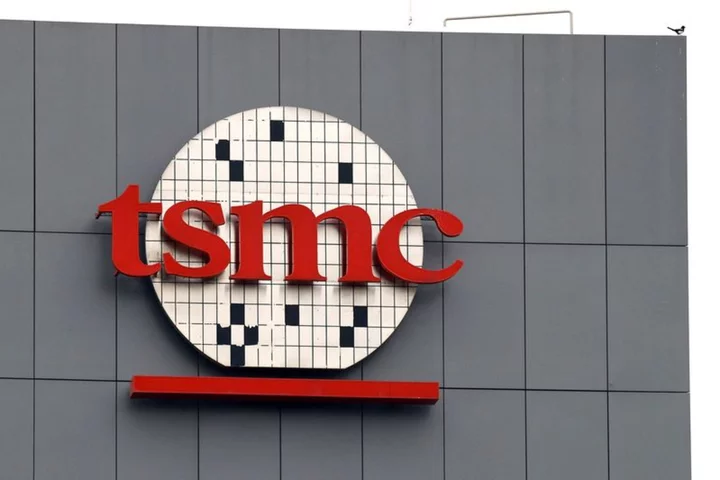By Sarah Wu
HSINCHU, Taiwan (Reuters) -Taiwan's chip industry is ready to work with the government to achieve its 2050 net-zero goal but development of renewable energy sources needs to be hastened as demand for artificial intelligence booms, a top industry executive said on Friday.
Taiwan imports nearly all its energy needs, mostly in the form of natural gas and coal, but has embarked on a big push for more renewable energy to achieve its carbon neutral target.
Cliff Hou, a senior vice president at the world's largest contract chipmaker, TSMC, said AI offered an opportunity rarely encountered in decades.
"Looking forward, how do we master a major trend such as AI?" Hou said. "I think the entire Taiwan semiconductor industry - in our essence, in our R&D and manufacturing, and in our global layout - will undergo a comprehensive improvement and transformation."
Key to the development of the industry is stable and renewable energy, Hou, the chairman of the Taiwan Semiconductor Industry Association, told its annual meeting in the chip hub of Hsinchu.
Last month, the association made four key appeals to the government, among them the stable supply of green energy, as Taiwan's chip industry aims to seize the AI opportunity, Hou said.
"In terms of energy, we hope that the government can, in every aspect, more actively develop new energy sources and maintain the stability of supply to the semiconductor industry," Hou added.
Both industry and government agree on cooperating on achieving the goal of net zero by 2050, Hou said.
"But here we have encountered several challenges," he said. "The supply of net-zero energy currently lags the demand of our entire semiconductor industry. We hope that the government can speed up the pace of developing new energy sources."
In 2021, Taiwan Semiconductor Manufacturing Co Ltd (TSMC) said it aimed to reach net zero emissions by 2050, matching a government target set that year by President Tsai Ing-wen.
Coal's contribution to Taiwan's power mix is set to fall below 30% by 2025, with the share of LNG rising to about half and renewables to a fifth, according to government plans.
In recent years, Taiwan has attracted billions in offshore wind investments and chipmakers have been keen to sign contracts with developers.
In addition to concerns over the supply of renewable energy, chip companies are also worried about whether it will be affordable, Hou told reporters on the sidelines of the meeting.
GlobalWafers CEO Doris Hsu told reporters that while AI will be a key driver of rapid growth in the next decade, Taiwan's chip industry faces several pressures as it grows.
"Now, it is not enough to have energy, you must have green energy in order to compete globally," Hsu said.
(Reporting by Sarah Wu; Writing by Ben Blanchard; Editing by Clarence Fernandez and Raju Gopalakrishnan)

